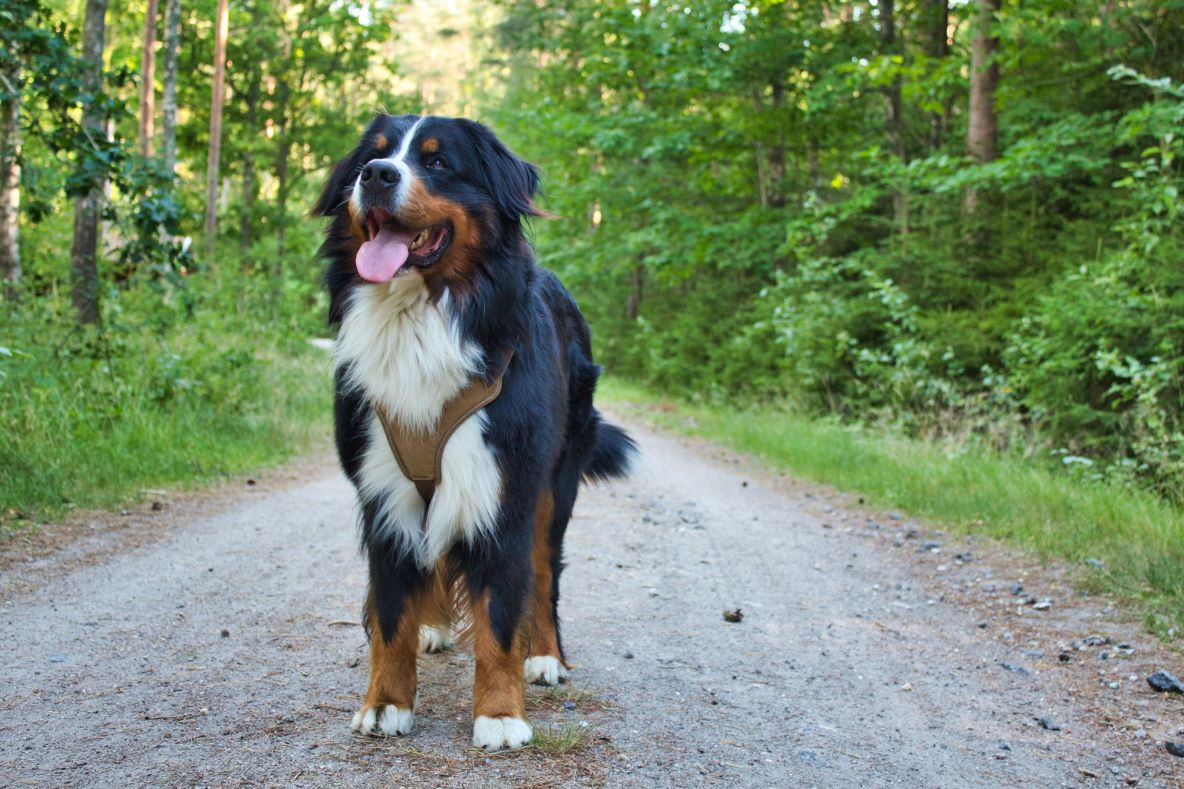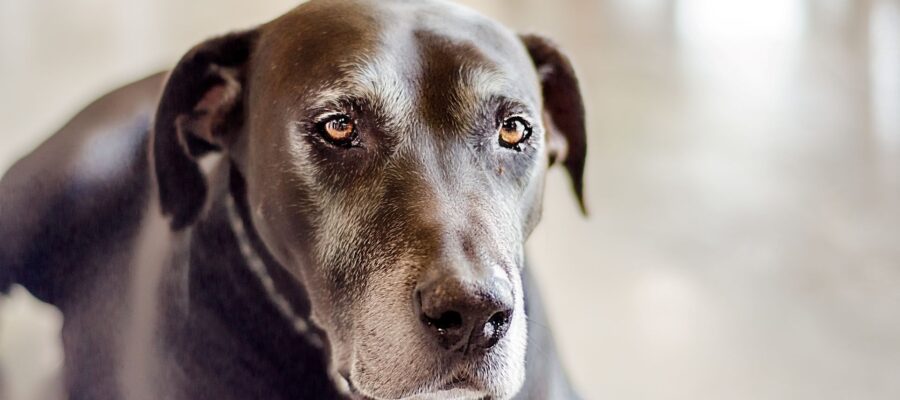
Dog Breed Spotlight – Bernese Mountain Dog
With their striking tri-colored coats, sweet expressions, and loveable personalities, it’s no wonder Bernese Mountain Dogs are adored worldwide. These gentle giants, hailing from Switzerland, exude a calm strength and unwavering loyalty. If you’re considering welcoming a “Berner” into your life, this blog will delve into their breed characteristics, care requirements, and answer common questions to help you decide if they’re the perfect fit.
A Brief History
Bernese Mountain Dogs descended from ancient Roman mastiff-type dogs. Throughout history, they served as versatile farm dogs in the Swiss Alps, pulling carts, guarding livestock, and offering steadfast companionship. Their popularity as family dogs soared throughout the 20th century.
Bernese Mountain Dog Appearance: Built for Work and Cuddles
- Size: Berners are large dogs, with males reaching 25-27 inches at the shoulder and females slightly smaller. They weigh in at a hefty 80-115 pounds.
- Coat: Their hallmark is the long, thick, tri-colored coat (black, white, and rust). Moderate shedding is a given with this breed.
- Build: Bernese Mountain Dogs are powerfully built, with sturdy legs and a broad chest. They move with surprising agility for their size.
- Expression: Perhaps their most endearing feature, Berners possess soft, intelligent eyes that radiate kindness.
Bernese Mountain Dog Temperament
Berners are renowned for their affectionate, good-natured, and easygoing personalities. Here’s what to expect:
- Loyal Companions: They form deep bonds with their families and crave human interaction.
- Gentle with Children: Berners are known for their patience and protectiveness with kids, earning them the nickname “nanny dogs.”
- Mild Energy: While not couch potatoes, adult Berners have moderate exercise needs. Puppies are more boisterous.
- Eager to Please: Their intelligence, paired with a desire to make their people happy, makes them generally receptive to training.
- Watchful Guardians: Berners possess a watchful nature and a deep bark, making them good alert dogs, though not overly aggressive.
Are Bernese Mountain Dogs Easy to Train?
Yes, Bernese Mountain Dogs are considered relatively easy to train. Their intelligence, people-pleasing nature, and food motivation contribute to their trainability. However, here’s what to keep in mind:
- Early Socialization is Key: Exposing Bernese Mountain Dog puppies to various sights, sounds, and experiences builds confidence and prevents timidity.
- Positive Reinforcement Works Best: Berners respond well to praise, treats, and gentle training methods.
- Consistency is Crucial: Maintaining clear rules and expectations is essential for success.
Health Concerns For A Bernese Mountain Dog
Sadly, Bernese Mountain Dogs have one of the shortest lifespans among dog breeds, averaging only 6-8 years. They’re predisposed to certain health problems including:
- Cancer: Several types of cancer occur at high rates within the breed.
- Hip and Elbow Dysplasia: Joint issues can cause pain and mobility problems.
- Bloat: A life-threatening stomach condition.
Important: Choosing a reputable breeder who prioritizes health testing and working with your vet for preventative care is crucial.
Caring for Your Bernese Mountain Dog
- Grooming: Their thick coats require regular brushing to prevent mats and manage shedding. Regular dental care, including teeth brushing, is important to prevent periodontal disease.
- Exercise: Moderate daily walks and playtime are necessary for their physical and mental well-being.
- Mental Stimulation: Berners enjoy training sessions, puzzle toys, and dog sports that challenge their minds.
- Climate Considerations: They are built for cooler climates and can overheat easily.
- Socialization: Ongoing socialization throughout their lives maintains their friendly nature.
External Resources
Is a Bernese Mountain Dog Right for You?
Bernese Mountain Dogs are wonderful companions, but it’s important to honestly consider if they suit your lifestyle:
- Do you have space for a large dog? Berners are not apartment-dwellers.
- Can you handle the shedding? If pristine floors are your priority, this isn’t the breed for you.
- Are you prepared for potential vet expenses? Health issues can be costly.
- Can you commit to early training and socialization?
If you’re seeking a loving, gentle giant to be your devoted companion, a Bernese Mountain Dog might just be your perfect match.






